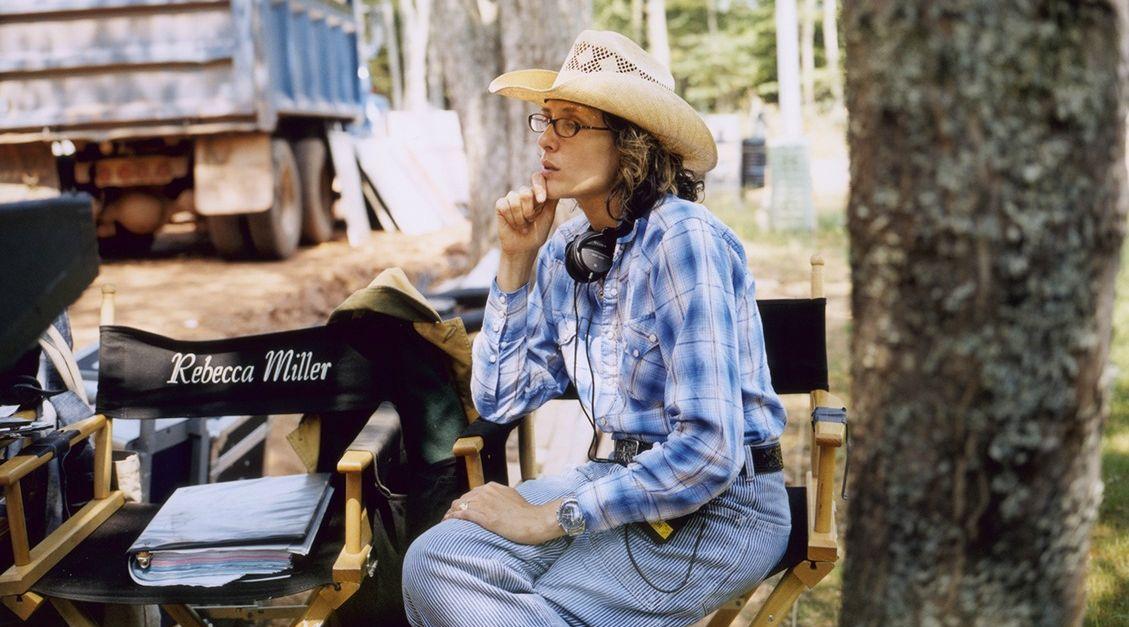Why Rebecca Miller thinks every director should have to do some acting
Rebecca Miller.
Rebecca Miller subscribes to the truism “if you want something done right, do it yourself.”
Miller writes novels and stories that she adapts into screenplays — and then she directs the movies herself, movies like “Personal Velocity” and “The Private Lives of Pippa Lee.”
Her new movie, “Maggie’s Plan,” stars Greta Gerwig as Maggie, a single young professional who wants a baby, without the bother of a relationship or marriage. But it’s a romantic comedy, so nothing goes as planned. For starters, she meets John, played by Ethan Hawke — a charming, needy, self-centered college teacher and would-be novelist with a wife and kids. John leaves his family for Maggie.
But Maggie has second thoughts, and hatches a plan to get John and his ex-wife back together.
This movie is Miller’s first overtly comic film.
“I love hearing people laugh in my movies,” Miller says. “It's not that I don't [usually] think about an audience for films. But that's not what I'm always thinking about is, ‘Well what is the audience going to like?’ But with this film, as I was cutting it, I remember walking down the street and thinking … ‘You would like my movie, you would like my movie.’ It was a funny feeling, too, because I do feel that it's built for pleasure and, you know, it's a wonderful feeling when you're in the cinema and people are enjoying it. It's a nice thing.”
None of the characters in “Maggie’s Plan” are obvious villains, but all of them have deep flaws — a choice that Miller says reflects her view of human nature.
“I think most of us exist [as a] kind of medium-flawed character,” Miller says. “I don't think most people are really purely good nor are most people purely evil. So that makes them real human beings and I was thinking that if you present a sort of complex flawed character that maybe on paper isn't doing the best things and an audience can come to love that person, it’s almost the generous thing to the audience because the audience is flawed, we're all flawed, so we're looking at a movie and thinking, ‘Oh. I recognize parts of myself that I don't like, but I can like that person, so there's something optimistic about it.’”
Miller doesn’t just have experience writing and directing films, she has also acted in them, an experience she says was a big learning opportunity for her.
“I found I was just good enough to get a few parts,” Miller says. “I worked with these wonderful wonderful directors and I learned. I mean that was really my film school.”
Acting, she says, is one of the hardest things she’s ever done — much harder than many people imagine it might be.
“It really left me thinking, ‘Oh my god this is so hard,'” Miller says.
“Your whole body, your whole self is exposed and has to be completely alive and present and you're being photographed. As a director I adore the kind of feeling of transparency that I have, like it's as if I've gone, I’m just a verb, you know? I'm just doing things, I’m not anybody to look at or pay attention to except in that I'm deciding. And I'm at the service of the story and I'm at the service of the actors and so that in a weird way is very relaxing.
"But to be an actor it's like everything is happening on the map of you. It's hard to put into words exactly … Every director should have to do that every 10 years. I’d forgot how hard it is.”
This article is based on an interview that aired on Studio 360.
Every day, reporters and producers at The World are hard at work bringing you human-centered news from across the globe. But we can’t do it without you. We need your support to ensure we can continue this work for another year.
Make a gift today, and you’ll help us unlock a matching gift of $67,000!
